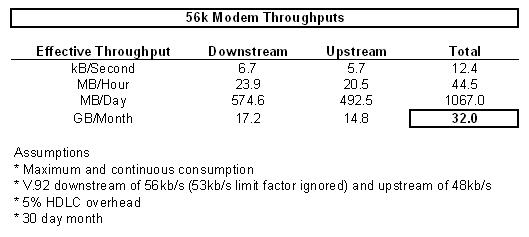It’s good to know that I can order up video on demand from the comfort of my own living room (transmitted over the woefully over-congested cable system’s network if you believe them). It’s not comforting to watch FCC Commissioner Robert M. McDowell parrot the broadband industry’s propaganda talking points on demand, and in a voluntary guest column in Monday’s Washington Post yet:

Robert M. McDowell, FCC Commissioner
Today, a new challenge is upon us. Pipes are filling rapidly with “peer-to-peer” (“P2P”) file-sharing applications that crowd out other content and slow speeds for millions. Just as Napster produced an explosion of shared (largely pirated) music files in 1999, today’s P2P applications allow consumers to share movies. P2P providers store movies on users’ home and office computers to avoid building huge “server farms” of giant computers for this bandwidth-intensive data. When consumers download these videos, they call on thousands of computers across the Web to upload each of their small pieces. As a result, some consumers’ “last-mile” connections, especially connections over cable and wireless networks, get clogged. These electronic traffic jams slow the Internet for most consumers, a majority of whom do not use P2P software to watch videos or surf the Web.
At peak times, 5 percent of Internet consumers are using 90 percent of the available bandwidth because of the P2P explosion. This flood of data has created a tyranny by a minority. Slower speeds degrade the quality of the service that consumers have paid for and ultimately diminish America’s competitiveness globally.
While we at the Federal Communications Commission are trying to spur more competitive build-out of vital “last mile” facilities, especially fiber and wireless platforms, this congestion will not be resolved merely by building fatter and faster pipes.
Peer-to-peer traffic has been an issue for the Internet long before the industry decided to call it a “bandwidth crisis.” And despite McDowell’s pleas for “cooperation,” putting engineers to work solving these problems instead of regulation, the broadband industry that appears before him with regularity has decided that cooperation really means a coordinated public relations campaign, with the delivery of identical talking points about a bandwidth crisis, a sky is falling plea to Washington to use taxpayer funds to improve the infrastructure formerly developed with private funds, and the imposition of egregious usage caps no matter what else happens to control the bandwidth piggies.
Judicial action by the entertainment industry trade associations have actually reduced a lot of the illegal file trading and peer-to-peer usage. And just as the company behind BitTorrent launches a whole menu of new, completely legal services, the cable and DSL providers come by and lay waste to such services, as consumers become reluctant to waste their bandwidth allotment on perfectly legitimate content.
Bandwidth saturation is not a problem only seen by the bandwidth providers. Software developers, professional and otherwise, are constantly refining their applications and protocols to reduce the effects of bandwidth saturation, when your Internet connection effectively freezes up. More importantly, the boneheads in the entertainment industry have finally realized that the best way to stop illegal distribution of your content is to offer that content yourself, legally with advertiser support. New services like Hulu and Joost give people exactly what they want – TV shows with limited and tolerable commercial interruptions without the need to fire up Pirate Bay and their favorite torrent application. It’s also cheaper than suing the very people consuming your content! That McDowell misses the forest for the trees is not a surprise – he was an early advocate and supporter of Digital Rights Management (DRM), a concept so despised by consumers, its days are numbered on most of the services that embraced it.
McDowell repeats the commonly heard “5%” refrain usually seen near the top of the industry press releases on the impending “bandwidth crisis.” But the rest of us are still waiting for independent verification of this claim, and an explanation as to whether or not this traffic is legitimate access to the “unlimited” service every provider has advertised to consumers, or some form of “abuse” already dealt with in existing acceptable use policies, which can be quietly enforced without hiring bandwidth management consultant Count Dracula to suck the life force out of the Internet for everyone else with usage caps.
I’m also hard-pressed to understand exactly how that 5% of traffic poses a major threat to America’s competitiveness globally, while a 5GB usage cap applied to 100% of one’s customers is shrugged off, if even acknowledged. One need only ask the CEO of Netflix: Is the erection of a Berlin Wall of usage caps a positive development for your business plan to deliver legal, high quality video content to subscriber televisions over broadband?
In McDowell’s world view, those consuming large amounts of bandwidth on perfectly legal products will shamefully achieve membership in the “Tyranny of the 5% Club,” abusing the rights of Bob down the street who has a computer to check his Yahoo! e-mail and little else, but now he has to wait because you insisted on watching Harry Potter. Shame on you. It’s all your fault.
Is McDowell unaware his doctrine of “cooperation” and “putting engineers on it” already has a solution to the “last mile congestion” problem, itself a logical lapse in the argument arsenal this industry uses to hoodwink us into believing the Internet is on the verge of crashing and burning.
DOCSIS 3.0, an improvement over existing data delivery technology still in place at most cable companies, can go a long way towards resolving any neighborhood congestion issues with channel bonding, which allows multiple channels to be devoted to upstream and downstream data. If Time Warner or Comcast doesn’t want to implement the new standard, that’s hardly the fault of the Harry Potter fan down the street.
At the same time they decry the collapse of online modern civilization, somehow these same companies find plenty of bandwidth to roll out more video channels you never asked for (but will be used as an excuse for next year’s rate hike), dozens of video on demand options, Voice Over IP telephone service, and the increasing number of digital HD channels and switched digital video, which transmits a TV channel to your neighborhood only when someone chooses to watch. Data is data. If there is a bandwidth crisis for cable modems, where is the plea to stop using too much television, stop ordering too much pay per view, and get off the phone because we’re out of bandwidth. I haven’t heard those panic buttons pushed, have you?
If the FCC wants to help spur America’s leadership role in the new Internet economy, it can begin by recognizing America is falling further and further behind other nations, because corporate greed is devolving Internet access domestically into a highly expensive, relatively slow, and usage capped nightmare. While American website operators will be redeveloping content to get rid of graphics or anything else that might eat too much data, the rest of the world moves forward with innovative broadband applications and content, all made available only to the wealthiest Americans who can afford the price. For the rest of us, time to get reacquainted with Gopher.



 Subscribe
Subscribe




